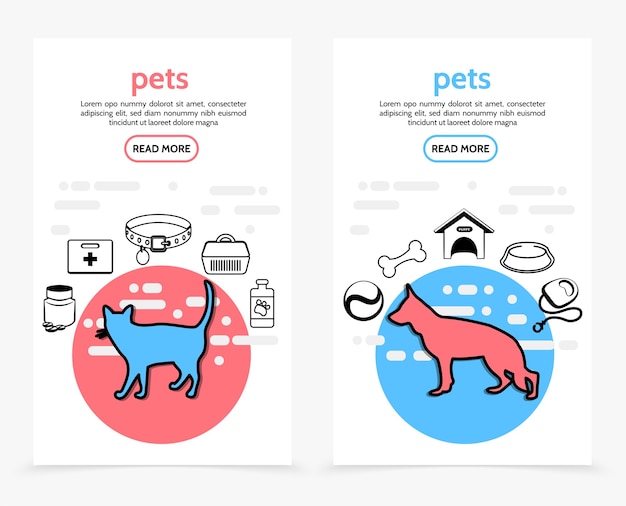Pet Behavior: How to Stop Your Dog from Barking Excessively
Pet Behavior: How to Stop Your Dog from Barking Excessively
At East Montgomery County Animal Hospital, we understand that excessive barking in dogs can be a frustrating issue for pet owners. While some barking is natural and even necessary for dogs, excessive barking can become a problem for both you and your neighbors.
In this blog post, we’ll discuss some common causes of excessive barking and provide tips on how to effectively stop this behavior.
One of the most common causes of excessive barking is boredom. Dogs need physical and mental stimulation to stay happy and healthy, and if they don’t receive enough, they may bark excessively as a form of self-entertainment. To address this issue, make sure your dog is getting enough exercise and playtime.
You can also provide interactive toys and puzzles to keep them mentally stimulated.
Another common cause of excessive barking is fear or anxiety. If your dog feels threatened or uncomfortable, it may bark excessively as a way to protect itself. If you suspect that your dog is barking excessively due to fear or anxiety, it’s important to address the root cause of the issue.
This may involve working with a professional trainer or behaviorist to help your dog feel more secure and confident.
Excessive barking can also be a result of attention-seeking behavior. Dogs may bark excessively to get your attention, especially if they’re feeling neglected or bored.
To address this issue, make sure your dog is getting enough quality time with you, and consider providing additional mental and physical stimulation through training, toys, and playtime.
It’s also important to note that certain breeds of dogs are more prone to excessive barking. If you have a breed that is known for excessive barking, it’s important to be proactive and take steps to prevent this behavior from developing.
This may involve early training and socialization, as well as providing plenty of physical and mental stimulation to keep your dog happy and engaged.
To stop excessive barking, it’s important to use positive reinforcement techniques. This means rewarding your dog for quiet behavior, rather than punishing them for barking. When your dog barks, simply say “quiet” in a firm but calm voice, and then give them a treat or praise when they stop barking.
Over time, your dog will learn to associate quiet behavior with positive reinforcement.
In addition to using positive reinforcement, it’s also important to manage triggers that may cause your dog to bark excessively. This may involve limiting exposure to certain stimuli, such as loud noises or other dogs, and providing a quiet, safe space for your dog to retreat to when they feel threatened.
While it can be difficult to stop excessive barking in dogs, with patience it can help pets feel secure and less anxious.
Regular playtime and positive reinforcement training can also help improve their mood and overall well-being. Secondly, it is important to avoid punishing pets for anxious behavior, as this can reinforce the anxiety and make it worse. Instead, it is recommended to provide comfort and reassurance during anxious times.
In addition to these steps, there are several natural remedies that can be used to help manage pet anxiety and depression. These include the use of pheromone diffusers, herbal remedies, and essential oils.
Our veterinarians at East Montgomery County Animal Hospital can provide advice and recommendations on the most effective natural remedies for your pet.
In some cases, more serious intervention may be required to help pets overcome anxiety and depression. Medications, such as anti-anxiety drugs, may be prescribed by our veterinarians to help manage symptoms. In severe cases, behavioral therapy may also be recommended to help pets overcome their fears and anxieties.
At East Montgomery County Animal Hospital, we believe in taking a holistic approach to pet health and well-being, which is why we also offer a range of wellness services to help keep pets healthy and happy. These services include regular check-ups, dental care, nutrition counseling, and much more.
Pet mental health is just as important as their physical health, and pet owners have a critical role to play in ensuring their furry friends are happy and healthy. If you suspect your pet may be experiencing anxiety or depression, don't hesitate to visit us, call us at (281) 689-9999 or visit our website to schedule an appointment.
Our team of experienced veterinarians and professionals are here to help, and we are committed to providing the best possible care for your pet.





















